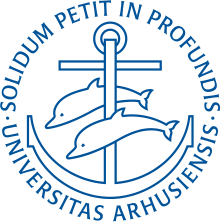 80
80 


Aarhus University is a comprehensive research and teaching university, placed in the world top-100 on several important rankings. The university has more than 40000 students and is placed in the middle of Aarhus. More than 50,000 people, or every sixth resident of Aarhus, are either a student or an employee at the university or another higher education institution in the city, with whom the university collaborates closely. As a result, Aarhus has the largest proportion of residents aged 17¨C34 years in Denmark, making it a truly lively and young city. Interdisciplinarity is one of the hallmarks of Aarhus University, the iNANOcentre, MINDLab and Arctic Research Center being prominent examples. Every year Aarhus University welcomes international students and scholars from around the world. The university offers a broad range of degrees and a growing number of full-time and part-time programs in English, and the summer university, also taught in English, is growing rapidly. Every year Aarhus University hosts more than 4000 international students. Most departments and institutes, and a large number of other educational institutions, are within walking distance of each other, creating a unique study environment. Aarhus Professor Jens Christian Skou was awarded the Nobel Prize in chemistry in 1997. In 2010 Dale T. Mortensen, a Niels Bohr professor in economics at Aarhus University, received the Nobel Prize in Economic Sciences. Among well-known alumni are Queen Margrethe II of Denmark, former NATO Secretary General Anders Fogh Rasmussen, former CEO at LEGO J?rgen Vig Knudstorp and the Danish physicist Lene Vestergaard Hau from Harvard.
 80
80 
| Subject | Rank |
|---|---|
Public Administration | 3 |
Ecology | 19 |
Agricultural Sciences | 20 |
Political Sciences | 22 |
Environmental Science & Engineering | 45 |
Geography | 51-75 |
Oceanography | 51-75 |
Food Science & Technology | 51-75 |